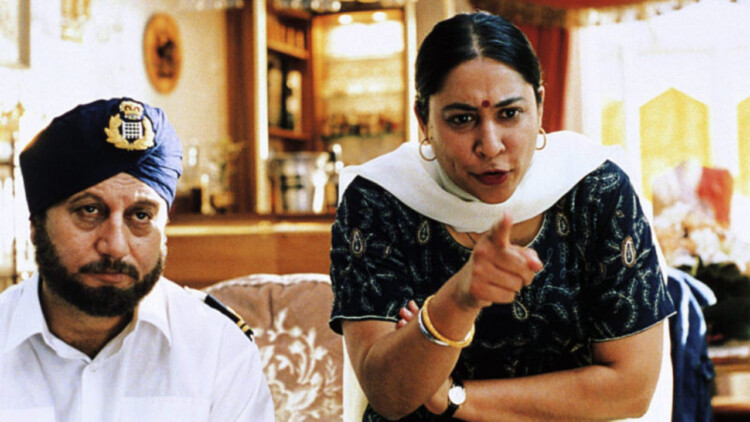Typical annoying phrases are used only by Indian parents when raising their children. These ridiculous, outrageous and daily utterances have become seemingly accepted phrases by their children. Let’s have a peek at the 10 most infamous and common phrases parents tend to use.
Money does not grow on trees (Kaasu onnum marethule kaaikele)
This term is popular when an unreasonable demand is made. Indian parents don’t owe their children a chance to understand how well every penny is earned. They always want their children to start earning and then understand the importance of money, otherwise, “I can’t afford all this, money doesn’t grow on trees!
It wasn’t like this in our day (Yenge kaalathulelam ippedi ille)
When children clearly act in a negative way or disobey, Indian parents continue to iterate that it wasn’t the same during their time. They only received gifts on special occasions. But now, they seem to be showering and pampering their children with gifts every now and then. Henceforth, complaining that their children have no value for money, resulting in rebellion and misbehaviour for always wanting more than given. This too tends to create a big gap between parents and their children.
You will realise when you have your own kids (Irru unakkunu pillenge irukerappe puriyum)
“Why haven’t you picked up my phone call?” oh well, the phrase is all too common for any Indian kid out there. The question intensifies when the kids are on vacation without their parents. So when the child fails to either answer or return the call, the worried parent usually will usually barge this out to the child, “You should know that you’re going to have your own children someday, imagine them doing the same to you, how would that make you feel?”
I have never questioned my elders (Naangellam ippedi peesenethu ille)
Indian parents obey all imaginable superstitions for the sake of their relatives. They want their children to adopt the same tradition, so if the children question their explanation, the parents almost certainly have this to say, “I never questioned my elders, so you better not retaliate or ask too many questions and do as I say!”
You will find out when you’re all grown up (Orru vayasu vanthone unakkom puriyum)
This is a rather popular term used against awkward queries about which parents have no reasonable responses or are not prepared to respond. Kids query, “Why did you do that?” The parents clueless on how to deal with the question at hand, simply brush it off by saying,” Don’t be disrespectful! You will discover it as you grow up!”
Because I am your father/mother (Yeena naa unnode Appa/Amma)
That’s the showstopper word. Any talk, any question, every debate comes to an end with this popular phrase of the Indian parent. It is often used for other directives given to teenagers. If the parents don’t have a reasonable explanation, they simply state, “Because I’m your mother” or “Because I said so.”
How many times do I have to repeat this? (Yethene thareveh thaan soldrethoo?)
Often children can be very annoying. Mothers have to remind their children to complete the job, whether its a household chore or homework or some other task, over and over again. It can get very tiring, hence an annoyed Indian amma or appa tends to shout, “How many times do I have to remind you to finish your chores/homework?”
Watching too much TV can lead to blindness (Rombe TV parthethe iruke, kanne veena pooge poothu paaru)
Watching too much TV can cause the muscles of the eyes to become sore, but it will not lead to blindness. Yet Indian parents believe the worst, and that’s another common phrase when they find their kids staring at the TV, “Stop watching too much TV, or else you will go blind!” does that sounds familiar? The writer thinks so.
Finish your meal, there are starving children out there (Somalia’leh lam ithu kuude illameh irukkange, nee kadeikerethe waste pandre)
Children cannot waste a single grain of rice on their plate, or their parents would instantly warn them, “There are children who are dying of starvation in the world, you get food easily, that’s why you don’t know how to value it and tend to waste so much food. Finish your meal.”
The songs of our generation are frowned upon (Yenge kaalethuleh ulle paatu maari varuma?)
Our parents, the baby boomers from the generation of MS Viswanathan, Asha Bhosle, Lata Mangeshkar, Mohammed Rafi, cannot adapt to the songs of Yo Yo Honey Singh, Anirudh, and the contemporaries. Whenever their kids tune into their favourite music channels, the parents yell, “Turn the volume down! What a terrible song!”.
Each child who grows up in an Indian household is very familiar with these phrases because they are always used by their parents. The phrases have been passed down as a tradition from generation to generation.
As much as we find our folks to be overbearing at times, we can’t help but love them, after all they are our ammas and appas.
Follow us on Instagram, Facebook or Telegram for more updates and breaking news.








